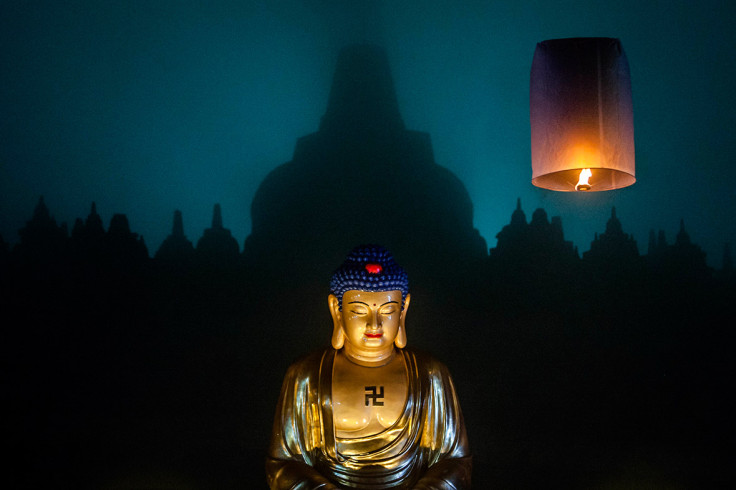China Urges Dalai Lama to Respect Reincarnation: What are the Principles of Rebirth?

The Chinese government has urged the Dalai Lama to respect the concept of reincarnation, after the spiritual leader declared he might be the last to hold such a position.
In an interview with German newspaper Welt am Sonntag, the Dalai Lama said he may not be reborn in China and might be the last in his line.
"We had a Dalai Lama for almost five centuries. The 14th Dalai Lama now is very popular. Let us then finish with a popular Dalai Lama," he said.
Despite the Dalai Lama saying his quote was taken out of context, the comments prompted China to defend the Buddhist principles of reincarnation and to urge the Dalai Lama to do the same.
"China follows a policy of freedom of religion and belief, and this naturally includes having to respect and protect the ways of passing on Tibetan Buddhism," said foreign ministry spokeswoman Hua Chunying. "The [present] 14th Dalai Lama has ulterior motives, and is seeking to distort and negate history, which is damaging to the normal order of Tibetan Buddhism."
In light of the Chinese government's comments on passing on the Buddhist doctrine, IBTimes UK looks at the principles of reincarnation.
Karma
Buddhists believe people can be born again and that their next lives are related to the previous ones. This interconnection between the different lives of the same person is called karma, which translates as "action". According to karma, every action has a consequence which can influence the future life of a person. Thus, good actions produce good karma and bad actions produce evil karma.
The Buddha said, "According to the seed that is sown, So is the fruit you reap. The door of good of will gather good results. The door of evil reaps evil results. If you plant a good seed well, then you will enjoy the good fruits."
Who is Buddha?
Siddhārtha Gautama Shakyamuni, known by many as Buddha, was a prominent theologian and sage in northeast India.
The year of his birth is not certain, but historians believed it is between 563 BC and 483 BC.
Buddha dedicated his lifetime to teaching a doctrine - later named Buddhism - according to which human beings must detach themselves from their material possessions in order to elevate their spirit and reach enlightenment: a state of mind in perfect harmony with the universe.
Buddha is said to have travelled to several countries and taught a diverse range of people including nobles, servants and murderers.
The actual date traditionally accepted for Buddha's death is 544 BC or 545 BC.
Many people are believed to have learned Buddha's teachings by heart and passed them on from one generation to another.
Stream of Consciousness, or the Nine Consciousnesses
According to Buddha, human beings have nine different layers of consciousness.
The first five correspond to the senses of sight, hearing, smell, taste and touch.
The sixth is the ability to integrate and process the various data collected via the five senses.
The seventh consciousness represents one's individual identity and also helps humans to distinguish between good and evil.
The eighth consciousness is based on the principle of karma and is constituted by all the experiences of present and previous lives. All these experiences are stored inside human beings and are differentiated between good and evil deeds. Depending on these deeds, humans can be rewarded with happiness or punished with suffering for their past actions.
The ninth consciousness, or Buddha nature, is able to generate a force that purifies the internal causes and effects that lie in the eighth, and improve the way the sixth and seventh consciousness function.
This state of consciousness can be achieved through meditation.
Saṃsāra or Rebirth
According to Buddhists, rebirth occurs when the life of a person comes to an end. During this process, the soul migrates from a body to another.
Thus, the rebirth represents the cycle of death and birth of humans' consciousness rather than of their bodies.
Zenguide.com says people who have developed their minds through meditation "have been able to recall their previous lives in great detail".
In 1952, American housewife Virginia Tighe was hypnotised by Morey Bernstein. While Tighe was in trance, she allegedly remembered events that occurred in her previous life, when she was a 19th-century Irish woman. Tighe also said she recollected her rebirth in the US 59 years later.
© Copyright IBTimes 2025. All rights reserved.






















